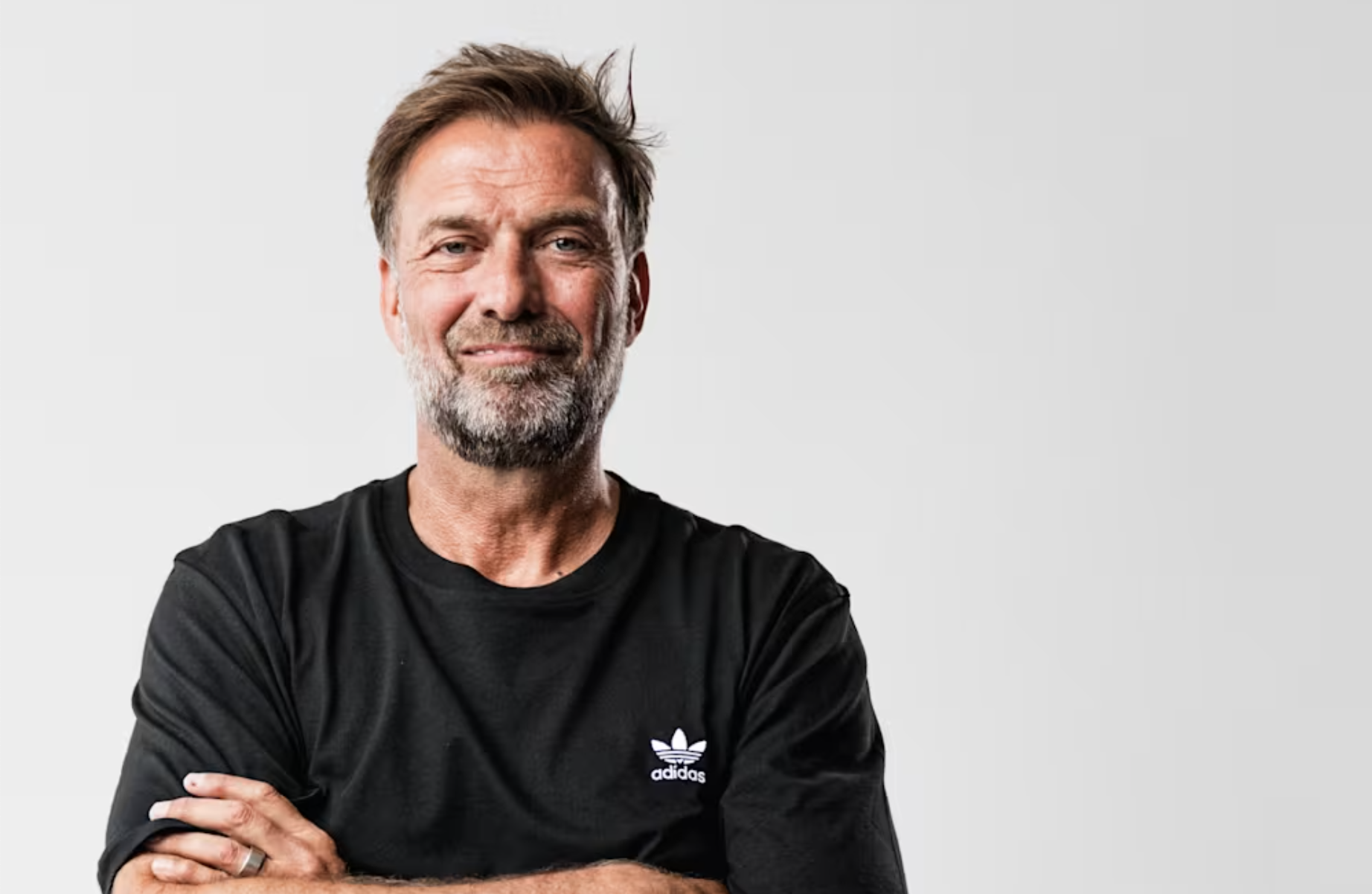Meet the new boss: All change across Europe as managerial merry-go-round starts to turn
FourFourTwo's Jonathan Fadugba looks at the managerial merry-go-round which is already swinging with intent around Europe...
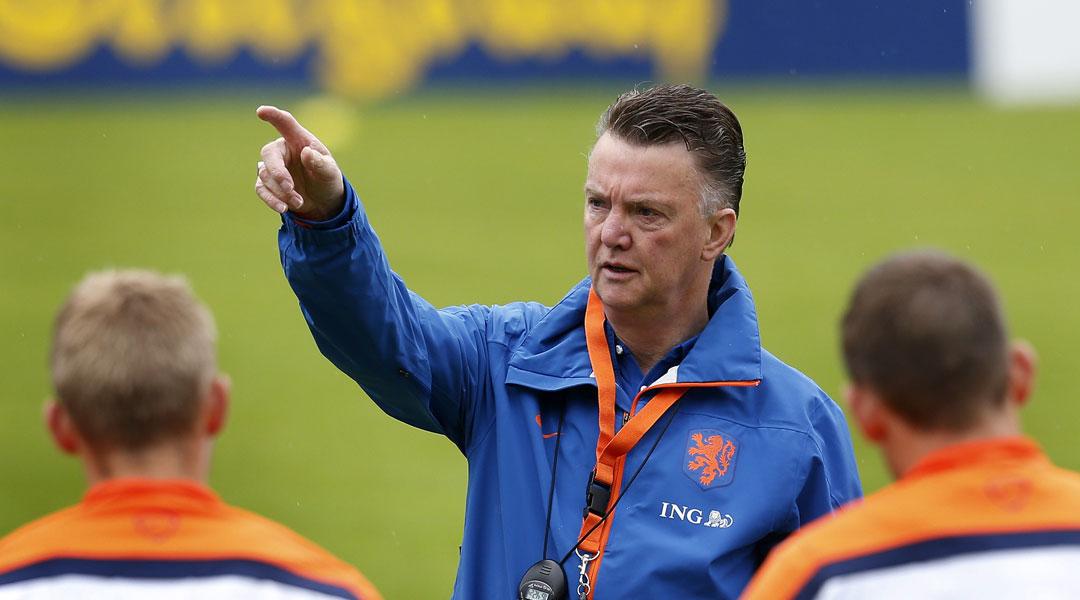
While some nondescript kickabout in Brazil hogs all the sports headlines a quiet revolution is taking place in the managerial dugouts of European football. Barely a speck of dust has settled on the 2013/14 yearbooks, yet already a number of high-profile managerial changes have taken place as clubs make plans for next season. Let’s take a look at the major wheelings and dealings so far…
THE MAJOR REBUILDS
Louis van Gaal
Netherlands to Man United
They say Louis Van Gaal has wanted to manage in England for some time, so the Manchester United vacancy came at a perfect time for the famously outspoken Dutch gaffer. A serial pot-collector in Holland, Germany and Spain – most notably winning the Champions League with the legendary Ajax team of the mid-1990s – Van Gaal is a moulder of talent and proven winner: just what England’s twenty-time champions need after a year of proven fiasco.
Supposedly, Van Gaal signed his contract, handed the United board a list of transfer targets and whistled off back to international duty without a care in the world. He may be in for a shock, therefore, if he expects to turn up post-World Cup and have his targets presented to him at Carrington in red ribbons. United’s executive vice-chairman Ed Woodward spectacularly bungled last season’s transfer dealings and the early signs suggest United are on course to repeat that history, which would leave Van Gaal starting with one hand tied behind his back much like his predecessor a year ago.
A major rebuild is required at Old Trafford and with Van Gaal away in Brazil until late June at the earliest he could be handicapped from day one, unless the board prove themselves fit for purpose in the coming weeks.
Biggest challenge: Finding the right players – Van Gaal is a renowned tactician, a respected leader and a stringent taskmaster. Bending the players to his will won’t be the main issue. Getting them through the door in the first place, will.
Get FourFourTwo Newsletter
The best features, fun and footballing quizzes, straight to your inbox every week.
Luis Enrique
Celta Vigo to Barcelona
It seems strange to think that after five league defeats in 2013/14 (as many as the previous two seasons combined), two transfer scandals, a botched presidency and a campaign of near perennial turmoil, Barcelona still went into their final game of the season with a chance of winning the league. That they took the lead at home to eventual champions Atletico Madrid, before throwing it away in the second half, summed up Barcelona’s annus horribilis – a shoddy season both on and off the field.
It’s now five years since Guardiola’s ‘Pep Team’ won the treble and with legendary figures like their bushy-haired beast of a captain Carles Puyol and the consistently underrated Victor Valdes riding off into the sunset (along with many other less celebrated players) the end of a glorious cycle in the Catalan capital has arrived.
Luis Enrique’s job is therefore a mammoth one. Lucho, as he is known, joins from Celta Vigo having played for Barca and coached their B team for three seasons between 2008 and 2011.
Biggest challenge: Barca lack the funds to compete with the riches available at Real Madrid, PSG or Manchester City so Luis Enrique will have to work shrewdly in the transfer market. He must also re-motivate a team in the midst of a minor identity crisis, integrate academy players like Gerard Deulofeu and Rafinha and work out how to get the best from Lionel Messi and Neymar. Easy, right?
Marcelo Bielsa
Unattached to Olympique Marseille
The hipsters’ choice is back. After a year long break presumably spent crouched in front of a TV screen watching beaten up videotapes of old football matches, one of Argentina’s finest managerial minds returns to the limelight, this time at France’s best supported club, Marseille.
The Rosario native has signed a two-year deal at the Stade Velodrome and his remit will be to make the fans dream again after three years spent in the shadow of the enemy, Paris Saint-Germain.
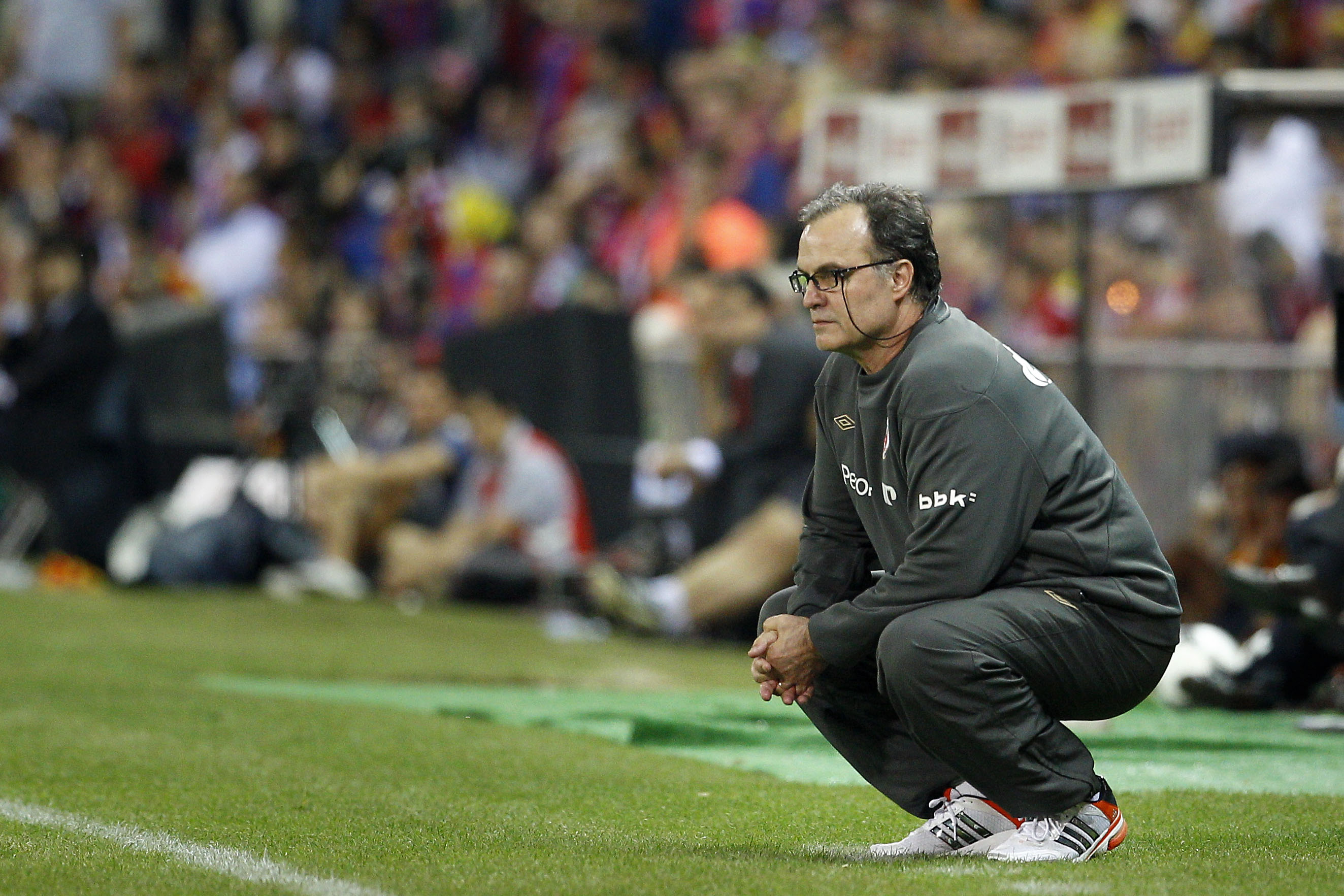
The appointment is hugely intriguing, and a massive coup for French football. It represents a total contrast in styles – a high intensity, ultra-attacking, forward thinking coach in a league renowned for its conservativism. Bielsa revolutionised Chile’s style of play - a legacy that continues today - and took Athletic Bilbao to the Europa League and Copa del Rey final in 2012. His philosophy is simple: “11 men attack, then when they lose the ball they defend.” How he adapts at arguably France’s biggest club will be fascinating.
Biggest challenge – Taking on two clubs in PSG and Monaco who boast annual budgets meatier than the GDP of various minor European nations.
THE UPWARDLY MOBILE
Mauricio Pochettino
Southampton to Tottenham
After a frankly inspirational season on the South Coast in which he guided Southampton to their highest ever top-flight finish whilst playing some of the most attractive, free-flowing, organised football in the Premier League, it was only a matter of time before Mauricio Pochettino began to attract longing glances from envious chairmen at clubs with greater means.
Behind the scenes Pochettino’s future had been uncertain for some time. His relationship with former chairman Nicola Cortese, who resigned mysteriously in January, was strong. So strong that Pochettino wore a tie given to him by Cortese at his final game in charge at St. Mary’s against Manchester United, one final display of loyalty in cravat format.
Of course we’ve been here before. Spurs have represented something of a poisoned chalice for bright, up-and-coming managers in recent years. Juande Ramos and Andre Villas Boas arrived with better CVs and similarly promising reputations. Neither succeeded. Pochettino arrives with a five-year contract and a hearty endorsement from chairman Daniel Levy ringing in his ears. What could possibly go wrong?
Biggest challenge: Managing expectations – 8 managers in 13 years under Levy’s stewardship shows he is not afraid to pull the trigger if deemed necessary. He may admire the Argie now, but immediate results will be expected. Pochettino will have to skilfully tread the thin line between talking the club up and making sure the lofty expectations don’t overwhelm him.
Hubert Fournier
Reims to Lyon
The scenario is becoming more and more of a rarity in England: relatively unknown domestic manager works consistently well at a smaller club within a meagre framework and, after years of overachieving, is handed the keys to a bigger vehicle. Such is the case for Hubert Fournier, who took Reims back into France’s top-flight after a 33-year absence and established them in Ligue 1, finishing 14th in their first season and 11th in 2013/14.
His reward is a job at one of France’s biggest clubs, Lyon, who needed a new gaffer after one-time Arsenal defender Remi Garde declined to renew his contract. An English equivalent would be Steve Bruce getting a job at Chelsea or Arsenal, which, let’s face it, would never happen.
Fournier played for Lyon in the late 1990s and has been recompensed for the simple virtues of hard work, shrewd management and steady, consistent progress.
Biggest Challenge: Keeping hold of Lyon’s best players. “Maxime Gonalons is the player around whom the future of Lyon should be built,” Fournier commented in his very first press conference. “It’s not my decision though and bigger clubs are always sniffing around.” Lyon’s captain is heavily linked with a move to Napoli and they could lose several key players this summer.

Roger Schmidt
Red Bull Salzburg to Bayer Leverkusen
Some managers are hired because they fit into an already-existing framework within the club. Pochettino as head coach alongside a director of football, for example. Others are hired because they match the club’s tactical vision. This is the case with Roger Schmidt at Bayer Leverkusen.
For the past few years the German club have played to a fast-paced tactical plan with emphasis on speed and fast breaks. After Sami Hyppia’s sacking in April they needed a new manager who could fit into this desired approach. Enter Roger Schmidt, whose Red Bull Salzburg team had pundits swooning in Austria last season thanks to their energetic, frantic style. Schmidt’s high-energy 4-2-4 formation helped Salzburg romp to the Austrian title, finishing 18 points clear of second place with 110 goals scored in 36 games. A 6-1 aggregate win over Ajax in the Europa League further raised Schmidt’s profile, and the German coach will take the reins in North Rhine-Westphalia next season.
Biggest challenge: Walking the walk. “[Schmidt] stands for physical, fast and attractive attacking football,” Bayer CEO Michael Schade raved after the appointment “We’ve extensively discussed Bayer’s future philosophy, and aim for a long-term partnership with Roger Schmidt.”
THE FIRST-TIMERS
Claude Makelele
Bastia
So good they named a position after him, Claude Makelele heads into next season hoping to master a new role – that of a successful manager. It’s the next step in the Frenchman’s career after spending the past three years since retirement working as an advisor to former PSG sporting director Leonardo and assistant coach to Carlo Ancelotti and Laurent Blanc. Makelele’s first job as numero uno is at Corsican club Bastia. He takes over from Frederic Hantz, a popular manager who won back-to-back promotions from France’s third tier to Ligue 1 before consolidating them as a top-flight outfit. A big test for little Claude awaits.
Biggest challenge: Matching up to the standards set by Hantz at a fiercely passionate and sometimes hot-headed club, at which there will be scrutiny from day one.
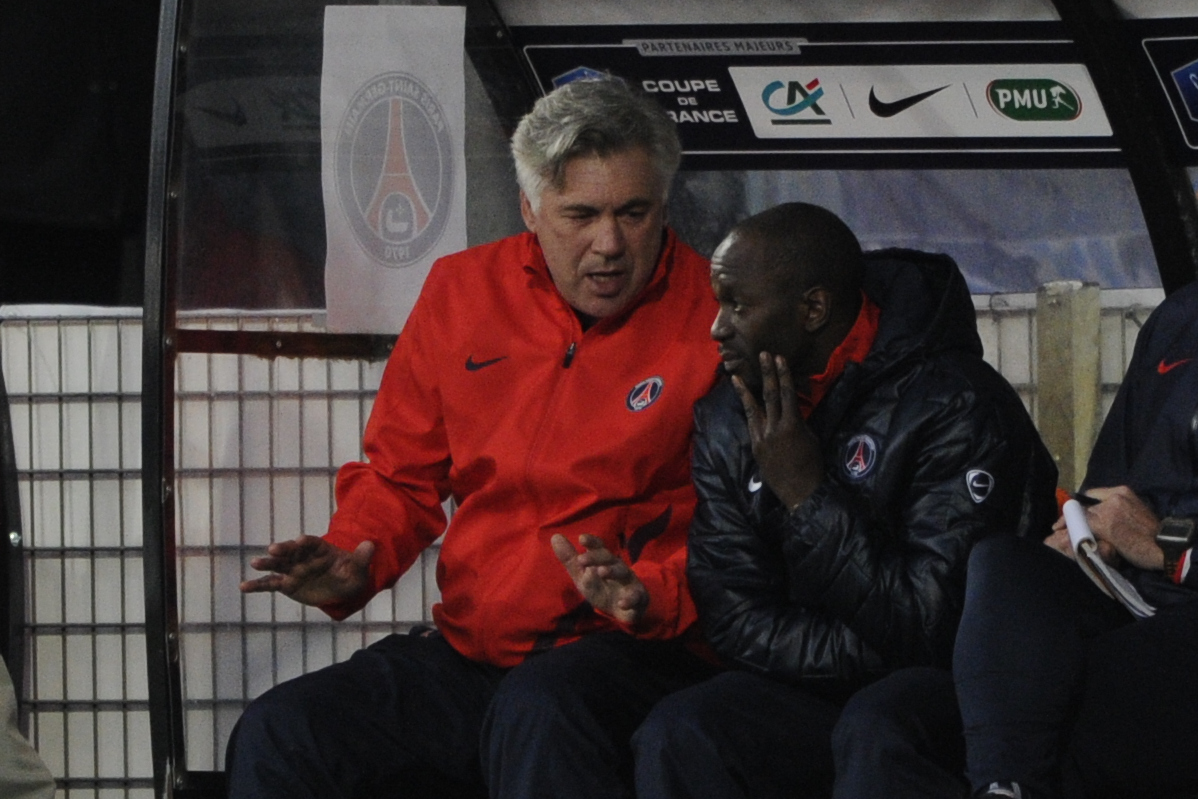
Filippo Inzaghi
AC Milan
AC Milan were11th in Serie A and 30 points behind leaders Juventus when Clarence Seedorf was appointed in January. He won 11 out of 19 games (compared with 5 wins in Milan’s first 19 games) and finished 8th, just one point off qualifying for the Europa League. Sounds like progress, right? Seemingly not enough to impress the Milan board. Only five months into a two-and-a-half year contract Seedorf is about to be ditched. The current worst-kept secret in Italian football is that youth team coach Filippo Inzaghi is the man they want to replace him.
Biggest challenge: Juggling the egos in the Milan boardroom and revitalising a squad packed with underachievers and lacking the talent to challenge for honours.
Willy Sagnol
Bordeaux
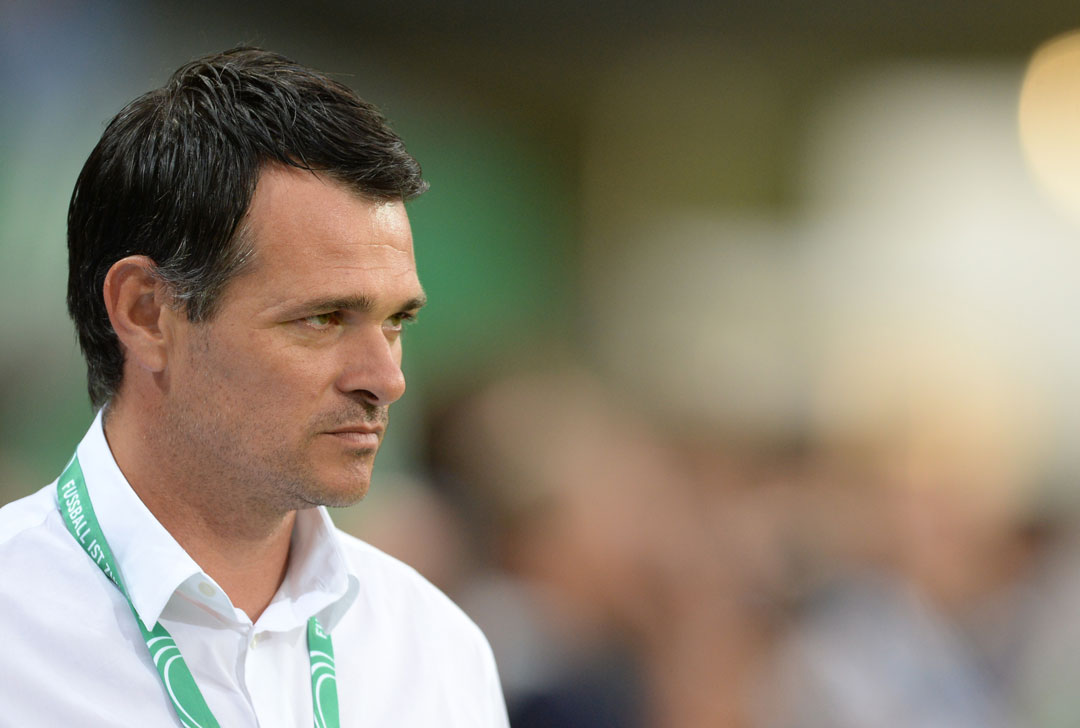
A robust right-back in his day, Willy Sagnol won five league titles, four domestic cups and the Champions League during eight years at Bayern Munich as well as a league title at Monaco. He also has a World Cup runners-up medal; Sagnol started the 2006 final against Italy and scored one of France’s three converted penalties, albeit in vain.
Sagnol wanted to be a police commissioner when he was younger and once famously told a high-profile critic of the France national team to “shut his mouth.” Perhaps it’s this hardline approach which attracted Bordeaux, who snapped him up from his spell as France’s U20 coach after being shunned by their first choice Zinedine Zidane.
Biggest challenge: Working to a tight budget at a club with big aspirations.
